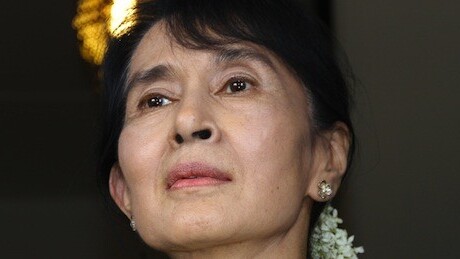
As Myanmar is witnessing historic parliamentary elections, it’s not surprising to find that social media is playing an integral role in reporting the results.
Aung San Suu Kyi, the Nobel peace prize laureate and face of the country’s opposition, is running for a seat for the first time since her victory in the 1990 elections, which saw her placed under house arrest instead of assuming her place in the government.
With a relative loosening of some restrictions, the government still has the country’s media on a tight leash. Just a few days ago, two opposition newspapers were summoned for questioning by government censors for publishing content that was critical of the country’s military rule. Press freedom in the country is all but an illusion, and it has been no different when it comes reporting election results.
Print media in Myanmar all goes through a censor, before reaching an audience, but according to AFP, newspapers are increasingly choosing not to send sensitive stories to the censors.
With the restrictions firmly in place, many publications hoping to get news to their audience in a timely fashion will resort to Facebook and Twitter instead.
While some publications are securing permission to print the news one day after the elections, others have opted for a new media choice which takes the content completely out of the hands of government censors.
Nyein Nyein Naing, executive editor of 7Day News, a weekly with a 1.5 million readership, told AFP, “Our paper will be (published) after the election, so we will post on Facebook and our Twitter account, so we will update all the news every hour after the polling stations open.”
The newspaper has a strong presence on Facebook, with over 27,000 fans, while its Twitter account remains a secondary, and far less popular tool. It’s popularity on Facebook is impressive when you consider the fact that Internet penetration rates in the country in June 2010 were a mere 0.2%, which translates to roughly 110,000 users. Some estimates now place the penetration rate at about 0.8%.
7Days News Facebook page and Twitter account are currently filled with by-the-minute updates about the elections, giving the publication unprecedented freedom to say what they want, far from the control of government censors. Naing said, “For the Facebook and Twitter, we don’t think about censorship at all, we just put everything that we have got.”
This isn’t the first time we’ve seen journalists and activists turn to the Internet during elections, bypassing governmental restrictions, whether to report, or even monitor the process.
Earlier this year in Egypt, during the parliamentary elections, activists used live-streaming service Bambuser as a means of monitoring and reporting irregularities, following the government’s decision to ban international observers.
Get the TNW newsletter
Get the most important tech news in your inbox each week.




